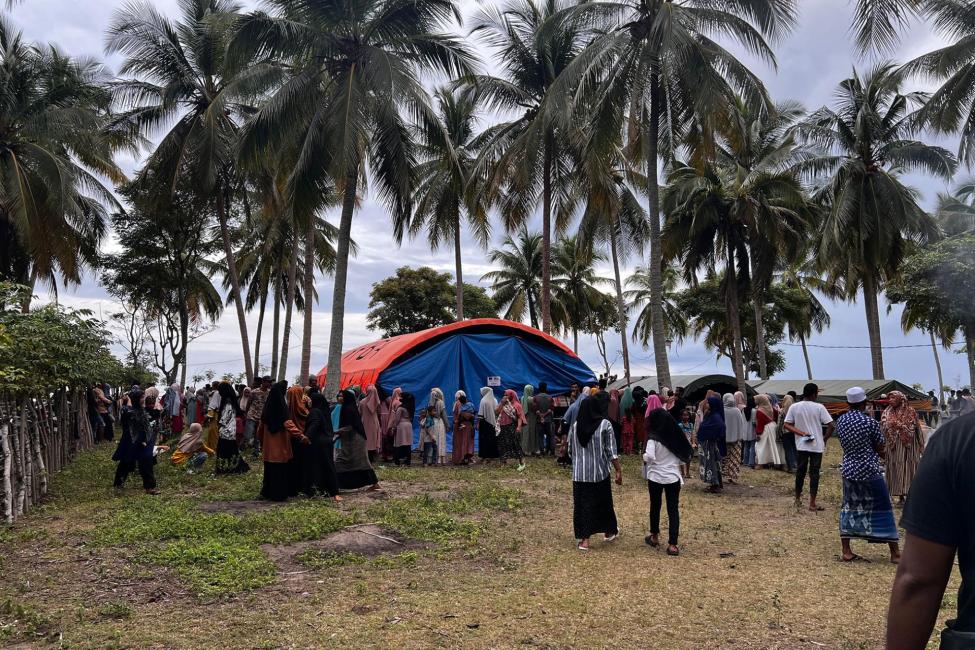-
Who we are
WHO WE AREThe International Organization for Migration (IOM) is part of the United Nations System as the leading inter-governmental organization promoting since 1951 humane and orderly migration for the benefit of all, with 175 member states and a presence in over 100 countries. IOM joined the United Nations system in September 2016.
About
About
IOM Global
IOM Global
-
Our Work
Our WorkAs the leading inter-governmental organization promoting humane and orderly migration, IOM plays a key role to support the achievement of the 2030 Agenda through different areas of intervention that connect both humanitarian assistance and sustainable development.
Cross-cutting (Global)
Cross-cutting (Global)
- Data and Resources
- Take Action
- 2030 Agenda
Nearly 50,000 Migrants Assisted to Voluntarily Return Home: 2021 Return and Reintegration Key Highlights
Geneva – Nearly 50,000 migrants were assisted to voluntarily return to their countries of origin with more than 113,000 reintegration activities supported globally in 2021, according to the International Organization for Migration (IOM) 2021 Return and Reintegration Key Highlights.
Last year saw an increase of global mobility. However, due to the COVID-19 pandemic, the number of returns is still short of pre-pandemic movements. In 2021, IOM assisted 49,795 migrants to return to their countries of origin, which represents an increase of 18 per cent compared to 2020. Among them, 6,367 migrants were assisted to return under IOM’s Voluntary Humanitarian Return (VHR) programme, a type of return assistance applied in humanitarian settings.
Just like in the previous year, the European Economic Area was the main host region in 2021 with 16,993 migrants assisted to voluntarily return to their countries of origin. Likewise, the Niger remained the main host country with a total of 10,573 migrants assisted to return, highlighting the continued trend of increasing returns from transit countries in other host regions outside of the European Economic Area.
“This publication highlights IOM’s ability to meet an increasing demand by migrants for safe and dignified returns as well as to support their reintegration into the countries of origin following the lifting of many travel restrictions imposed during the pandemic,“ said Yitna Getachew, Head of IOM’s Protection Division.
Reintegration is a key aspect of assisted voluntary return programmes to provide opportunities to returnees and promote sustainable development in their countries of origin. In 2021, IOM offices in 121 countries worldwide supported 113,331 reintegration activities at the individual, community, and structural levels. Overall, the top three countries, including both host and countries of origin, that provided reintegration support in 2021 were Germany (15%), Nigeria (12%) and Guinea (8%). The support consisted mainly of social assistance, economic assistance, and reintegration counselling.
“The publication offers rich insights into global trends in terms of return and reintegration assistance provided by IOM in accordance with its rights-based approach and protection framework. IOM is assisting migrants who are seeking to return to their countries of origin in full respect of their human rights and is contributing to their sustainable reintegration,” Getachew added.
In 2021, IOM released its Policy on the Full Spectrum of Return, Readmission and Reintegration, which guides the Organization’s work and engagement with partners on return migration through a holistic, rights-based, and sustainable development-oriented approach that facilitates return, readmission, and sustainable reintegration. It focuses on the well-being of individual returnees and the protection of their rights throughout the entire return, readmission, and reintegration process, placing individuals at the centre of all efforts and empowering those making an informed decision to participate in assisted voluntary return programmes.
The main host countries of migrants assisted by IOM to voluntarily return to their countries of origin are presented in the list below.

The report which highlights the Organization’s Return and Reintegration programmes includes trends, figures, and initiatives to assist migrants in their safe and dignified return and sustainable reintegration.
The 2021 Return and Reintegration Key Highlights report is available in full here.
***
For more information, please contact:
Kennedy Omondi Okoth, kokoth@iom.int
Claudette Walls, cwalls@iom.int
Silvan Lange Nesat, slange@iom.int

